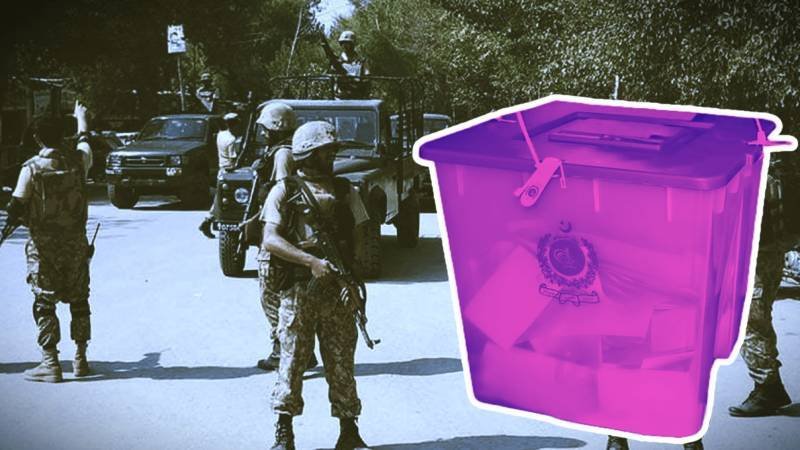Written by Naveed Hussain Chaudhry
Election campaign and voting day security is critical to ensuring the legitimacy, credibility and integrity of the electoral process. Elections are a contest of legitimate power that can be called a non-violent contest fought within a political forum. However, elections can also face threats from internal and external factors such as cyber-attacks, influence campaigns, intimidation, violence, and attacks. These threats can undermine the confidence of voters, candidates and election officials in the electoral system and potentially affect the acceptance of the results.
Therefore, it is important to adopt effective measures to secure the election campaign and the voting day as well as the pre- and post-election phases. Steps that can be taken to protect the electoral process are:
Implementing an enterprise-wide software and page management program is essential to reduce the likelihood of cyber-attacks and malware attacks on election systems. This includes establishing an inventory of the software and hardware used in the election infrastructure, regularly applying security updates and updates, and using application permissions to prevent unauthorized software from running. Is.
Maintain and properly store logs from both network devices and local host for triage and remediation of cybersecurity events. This includes securing central logins, encrypting logins and maintaining backups, and monitoring and analyzing logs for anomalies and indicators of compromise.
Understanding the election system as critical infrastructure and establishing an integrated and collaborative approach among federal, state, local, tribal and territorial governments, as well as election stakeholders and private sector partners. This includes sharing risk information and best practices, conducting joint risk assessments and audits, and providing technical support and resources.
This includes ensuring equal and rights-based security for those participating in elections, including voters, candidates, election workers, observers and the media. This includes respecting freedom of speech and association, providing a reasonable and proportionate response to actions, and avoiding the appearance of bias or favoritism by security forces.
Anticipating and preventing security threats, reducing their impact or likelihood of occurrence, and developing contingency plans for potential scenarios. This includes risk analysis and risk assessment, developing security protocols and standard operating procedures, and training and equipping security personnel.
Don’t forget to Subscribe our Youtube Channel & Press Bell Icon.
Enforcing special security measures or arrangements during the election period, such as deploying additional security forces, imposing curfews or restrictions, establishing checkpoints or blockades, and banning or confiscating weapons. These measures should be based on the specific context and needs of the elections, and should be communicated to the public in a transparent and timely manner.
These are some of the steps that can be taken to secure the electoral process. However, there is no single model or solution that is universally applicable to all countries or situations. Every election is unique and requires a tailored and flexible approach that takes into account the social, political, cultural, and historical factors of the people and the country. The ultimate goal of securing the electoral process is to ensure that the will of the people is expressed and respected in a peaceful and democratic manner.
As elections approach, there are legitimate concerns about the security of candidates campaigning and the public involved in election activities. Recent statistics of terror-related incidents and reports from KP security officials reveal a bleak situation in the province. However, top law enforcement officials believe the situation is still ‘under control’. Every effort should be made to maintain it, or to improve it. It is undeniable that the task of the institutions in charge of internal security is difficult: it is their responsibility to ensure peace against all odds. There have been several attempts to suggest that the elections be postponed further due to the poor security situation. However, Pakistan’s law enforcement and security agencies have the necessary skills and equipment to meet all the challenges, and will surely perform better if they receive the required resources and support from the government. Elections are a normal thing in any country. To call for their postponement because some hostile force might try to disrupt them seems more like capitulation than a prudent decision of a sovereign state.
Pakistan’s enemies have tried to impose themselves at a critical period in its socio-political history. They must be taught once again that their evil plans cannot control our lives. In 2008, the situation was worse than today, but the elections were still held. Due to the many sacrifices made by our brave soldiers, police forces and other security personnel, violence has reduced over the years. As a result, the 2013 and 2018 elections were held under better conditions. There is no doubt that incidents related to terrorism are on the rise again but we have overcome such difficulties in the past and once again we have to decide to move forward. Of course, this will require all frontline security forces to be extra vigilant and more proactive in detecting and eliminating threats. But, given Pakistan’s vast experience in counter-terrorism operations and high-level successes in the war against terrorism, our security agencies are also much more prepared than in 2008 and are ready to defeat any hostile elements. Have full potential.
















